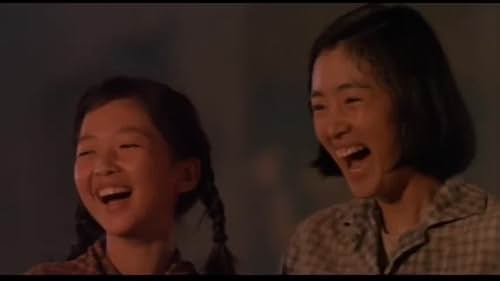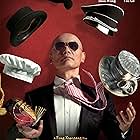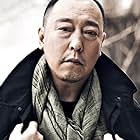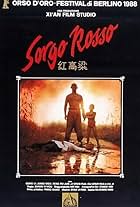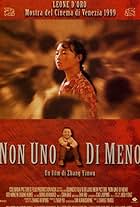Dopo che Fugui e Jiazhen persero le loro fortune personali, fondarono una famiglia e sopravvissero a difficili cambiamenti culturali negli anni '40 e '70 della Cina.Dopo che Fugui e Jiazhen persero le loro fortune personali, fondarono una famiglia e sopravvissero a difficili cambiamenti culturali negli anni '40 e '70 della Cina.Dopo che Fugui e Jiazhen persero le loro fortune personali, fondarono una famiglia e sopravvissero a difficili cambiamenti culturali negli anni '40 e '70 della Cina.
- Ha vinto 1 BAFTA Award
- 5 vittorie e 6 candidature totali
Trama
Lo sapevi?
- QuizInitially, Director Zhang Yimou was forbidden from filmmaking for 5 years by the Chinese Communist Party as a result of making this film. However, due to outside pressure this was later withdrawn.
- Citazioni
Little Bun: [playing with chickens] When will they grow up?
Xu Jiazhen: Very soon.
Little Bun: And then?
Xu Fugui: And then... the chickens will turn into geese... and the geese will turn into sheep... and the sheep will turn into oxen.
Little Bun: And after the oxen?
Xu Fugui: After oxen...
Xu Jiazhen: After oxen, Little Bun will grow up.
Little Bun: I want to ride on an ox's back.
Xu Jiazhen: You will ride on an ox's back.
Xu Fugui: Little Bun won't ride on an ox... he'll ride trains and planes... and life will get better and better.
Both leading actors nicely portray the way their characters change over the years. At first, Fugui is the stereotypical "callow young man" and Jiazhen the even more stereotypical "long- suffering wife," but the screenplay and actors eventually deepen the characterizations.
The best sequence of the film covers the Chinese Civil War. Wisely, Yimou Zhang resists the temptation to make the movie too epic, and instead focuses on Fugui's personal experiences. The result is a very moving depiction of the human cost of war. In another striking touch, Fugui's hobby is singing with a shadow-puppet troupe. The puppets not only provide an interesting glimpse into traditional Chinese culture, they also take on a symbolic meaning.
After watching "To Live," it's easy to see why the Chinese authorities banned it: there's a lot of tragedy in the film, and in most cases, Communism is to blame. Remarkably, though, Zhang also makes many of the Communist characters sympathetic. For instance, Fugui and Jiazhen's daughter marries an officer in the Red Guards, who is a little ridiculous in his devotion to Mao Zedong, but not a villain. This is in keeping with the overall spirit of "To Live"--humanistic and subtle, instead of bombastic or propagandistic. It's both an important examination of recent Chinese history, and a universal story about how individual human beings manage "to live" in times of hardship. A rare combination, and one well worth seeing.
- marissas75
- 13 feb 2006
- Permalink
I più visti
- How long is To Live?Powered by Alexa
Dettagli
Botteghino
- Lordo Stati Uniti e Canada
- 2.332.728 USD
- Fine settimana di apertura Stati Uniti e Canada
- 32.900 USD
- 20 nov 1994
- Lordo in tutto il mondo
- 2.332.728 USD
- Tempo di esecuzione2 ore 13 minuti
- Colore
- Mix di suoni
- Proporzioni
- 1.85 : 1
Contribuisci a questa pagina


